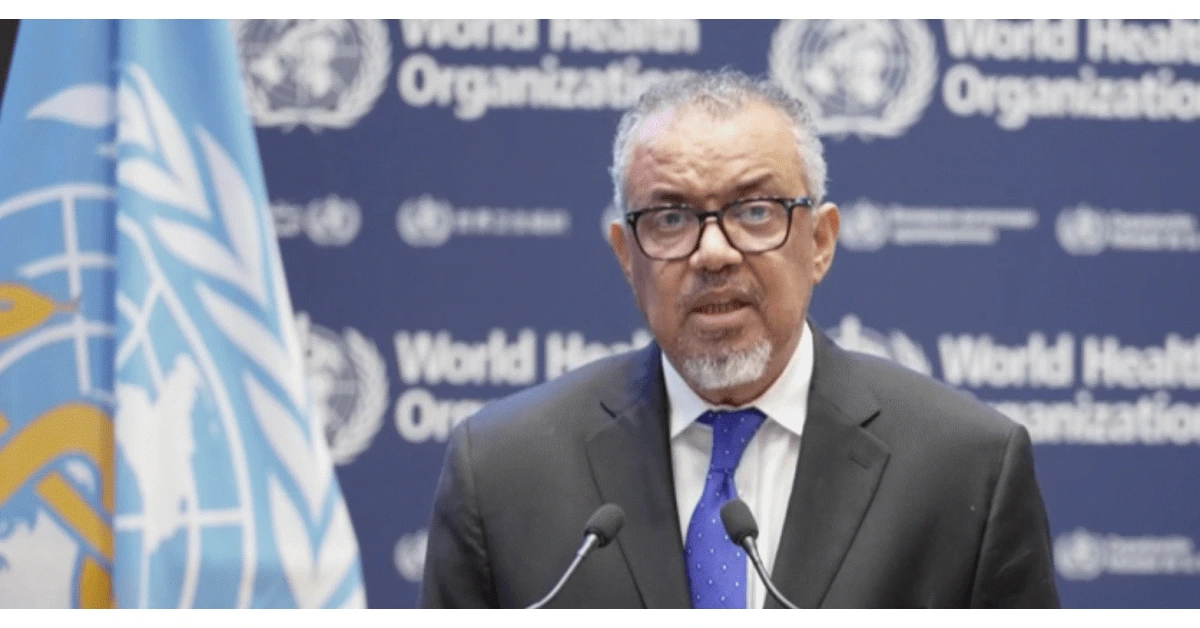
SWITZERLAND – At a recent World Health Organization (WHO) executive board meeting, member states showed strong support for the organization despite the United States’ decision to withdraw.
However, many countries urged diplomatic efforts to encourage the US to reconsider its exit. Israel, a close ally of the US, pointed out that while the loss of US membership fees is a significant issue, a bigger concern is the potential loss of interest from “international bodies, companies, industry, and academia.”
Dr. Asher Salmon from Israel emphasized the importance of initiating productive discussions with the US to explore the possibility of revising their decision.
Senegal’s Health Minister, Dr. Ibrahima Sy, suggested mobilizing global health diplomacy to persuade the US to reconsider its stance.
He encouraged the WHO executive board to engage with the US government and its Congress to convince them to remain part of the organization.
The US will remain a WHO member until the end of the year as it serves out its notice, but its presence at the meeting was limited to officials Michael Lim and Steve Smith, who did not speak.
The new US Chargé d’Affaires in Geneva, Tressa Rae Finerty, was also absent, although her name appeared on the roster of participants.
WHO’s major donors reaffirm support
WHO’s biggest donors, including the European Commission, Germany, the United Kingdom, China, Japan, Canada, and France, all reaffirmed their commitment to the organization.
Poland, speaking on behalf of the European Union, emphasized the importance of a common agenda to address growing health challenges despite limited financial resources.
However, they acknowledged that the US withdrawal could affect WHO’s “predictable financing.”
Germany, represented by Alicia Longthorne, expressed unwavering support for WHO as a critical part of global health governance.
They called on all member states to provide sustainable financial support to help WHO fulfill its mission.
The UK announced a commitment of £20 million (US $24.8 million) to support WHO’s transformation efforts. China reiterated its support for the WHO but emphasized the need for better access to healthcare in developing countries. Japan and Canada also reaffirmed their dedication to working closely with WHO to strengthen global health efforts.
Challenges for Africa and solidarity in the region
The withdrawal of the US from WHO is expected to have the most significant impact on the African region, which comprises 47 member states.
Dr. Sy from Senegal expressed concern about the potential gap in support for Africa and called for solidarity to fill this gap.
Even Ethiopia, despite its opposition to Dr. Tedros Adhanom Ghebreyesus’ re-election as WHO Director-General, voiced its support for WHO.
Ethiopian Health Minister Dr. Mekdes Daba urged member states to honor their commitment to increasing contributions to WHO.
Tedros reflects on WHO’s challenges and achievements
Dr. Tedros, WHO’s Director-General, provided a detailed report on the organization’s progress and challenges over the past year, including his life-threatening experience during an attack on Yemen’s airport in late 2024.
He highlighted WHO’s successes, such as the elimination of tropical diseases and new guidelines on midwifery.
Despite the US’s withdrawal, Dr. Tedros expressed hope that the country would reconsider its decision and praised the historical contributions of the US to global health, such as the eradication of smallpox.
Dr. Tedros also addressed the reasons behind the US withdrawal, including criticisms of WHO’s handling of the COVID-19 pandemic.
He rejected these criticisms, stating that WHO acted quickly in response to the pandemic and took numerous steps to strengthen global health security.
Tedros also responded to claims that WHO was politically influenced, emphasizing the organization’s impartiality and commitment to evidence-based decisions.
Funding and efficiency proposals for WHO
In light of the funding challenges, the WHO’s Programme, Budget, and Administrative Committee (PBAC) proposed a 20% increase in member states’ assessed contributions.
This move aims to reduce the reliance on a few major donors, including the US. The African region, represented by Senegal, committed to the increased fees despite economic challenges.
The WHO also proposed a slightly reduced base budget for 2026–2027 to ensure continuity of essential programs.
Dr. Jerome Walcott, the chair of the executive board, noted that the organization would need to pursue both resource mobilization and efficiency improvements to cope with the financial strain.
XRP HEALTHCARE L.L.C | License Number: 2312867.01 | Dubai | © Copyright 2025 | All Rights Reserved